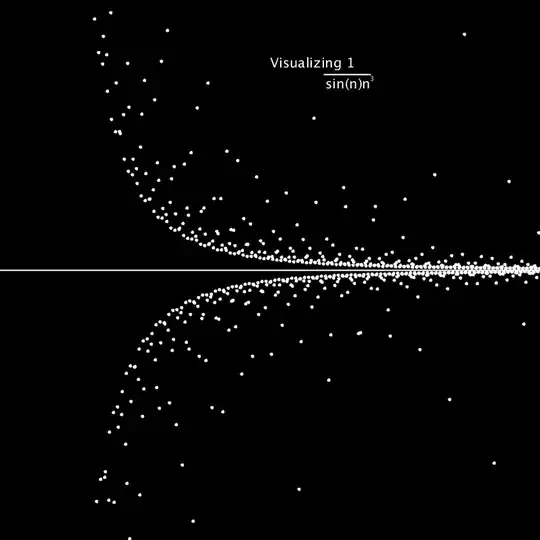The answer to this question depends on the irrationality measure $\mu(\pi)$ of $\pi$, in a way which means it is unsolved. (The current state of the art is that $2 \leq \mu(\pi) \leq C$, where $C \approx 7.6$.)
Suppose that $\mu(\pi)>4$. Then there exist infinitely many pairs of integers $(p,q)$ such that
$$\left|\pi - \frac{p}{q}\right|<\frac{1}{q^4}$$
For such a $p$, $|\sin p|=|\sin(p-q\pi)|<|q\pi - p|<\frac{1}{q^3}$ and so
$$
\left|\frac{1}{p^3\sin p}\right|>\frac{q^3}{p^3}>\frac{1}{27}
$$
(as $\frac{p}{q}$ closely approximates $\pi$, so in particular it will be greater than $3$). Since the sequence can only converge to zero, this is enough to show that it diverges.
On the other hand, suppose the sequence diverges. Then there is some constant $C$ and subsequence $(p_n)$ such that
$$\left|\frac{1}{(p_n)^3\sin p_n}\right|>C$$
for all $n$. Choose $q_n$ so that $|p_n-\pi q_n|<\frac{\pi}{2}$. Then we have
$$
|\pi q_n-p_n|<\frac{\pi}{2}|\sin(p_n-\pi q_n)|=\frac{\pi}{2}|\sin p_n|<\frac{1}{C (p_n)^3}
$$
and so
$$
\left|\pi-\frac{p_n}{q_n}\right|<\frac{1}{C(p_n)^3q_n}<\frac{1}{27C(q_n)^4}
$$
for infinitely many $p_n,q_n$. This is enough to imply that $\mu(\pi)>4$.
So, in summary, finding whether the sequence converges essentially boils down to comparing $\mu(\pi)$ to $4$: a wildly unsolved problem.
